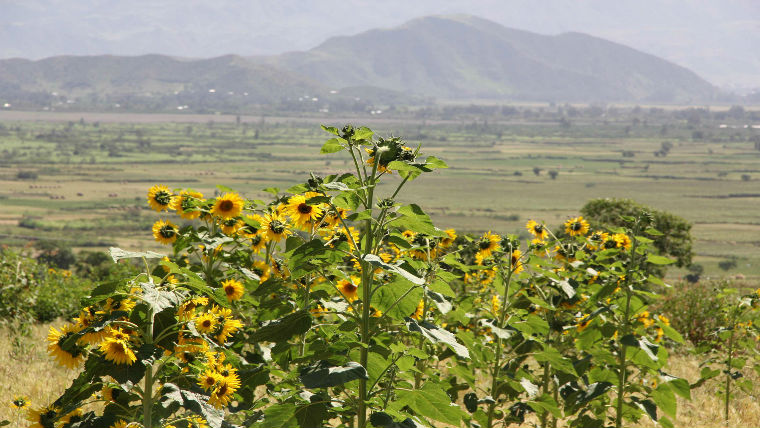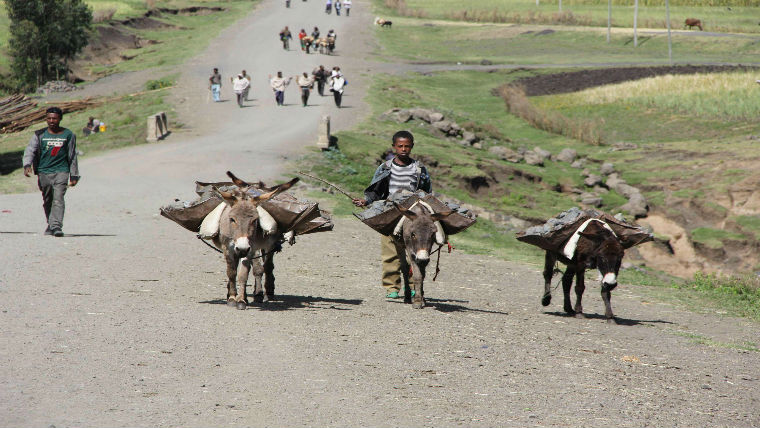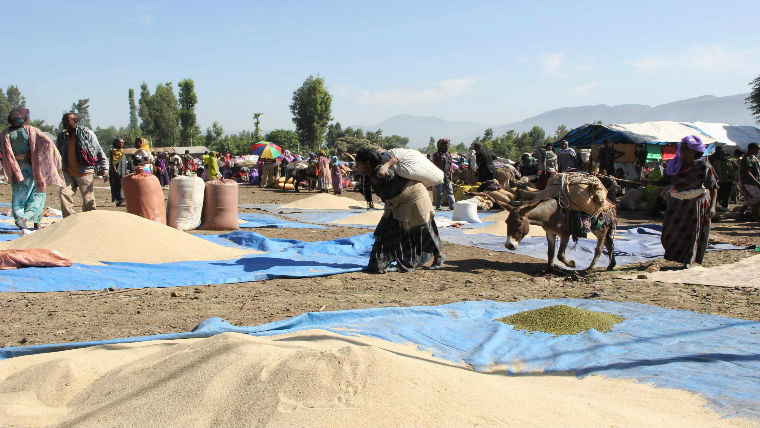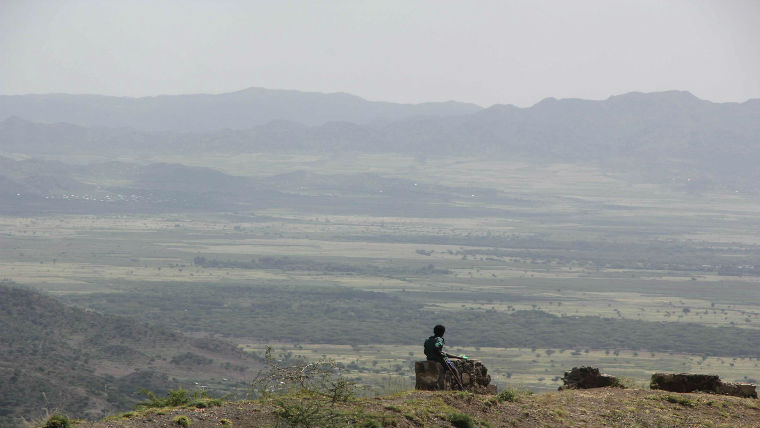BBC crew returns to Ethiopia, 30 years after historic broadcast
Today marks the 30th anniversary of Michael Buerk and Mike Wooldridge’s harrowing and moving reports about hunger in Ethiopia.
The historic broadcasts brought the problem to the world’s attention and led to the Live Aid concerts and the first large scale humanitarian relief effort. 
“Today, children and their families no longer suffer from food insecurity,” says Margaret Schuler, World Vision’s National Director in Ethiopia. “This is an amazing accomplishment. We regularly hear of farmers producing surplus as crop production in the region has increased by 100% in the last five years alone.”
The key to this, she says, is the investments that local government, donors and organizations such as World Vision have made in building the resilience of communities.
“Our work training farmers in better ways to manage forests, running small-scale farms and connecting households to local resources has proven that communities can become more resilient and withstand shocks over time,” declares Mrs. Schuler.
Today, nearly all children in Antsokia are classed as adequately nourished under World Health Organization standards. Moreover, the vast majority of children now have access to primary school and all of them can consult skilled health professionals and visit clinics within short distances from their homes.
“A few years ago, I got sick with malaria and typhoid, but thanks to the health center nearby, I had access to the right treatment,” says Hikmet, an 11 year-old who is in sixth grade. “I now dream of becoming a doctor.”
For older people who went through the famine three decades ago, it is still hard to believe the transformation that has taken place in the valley. “In 1984, you would never see something like a big farm,” says Adebe who was 20 years old during the famine. “Even trying to grow seedlings would have been impossible as everything was very dusty.”
Adebe is one of the many farmers who benefited from World Vision’s training programmes. “I have learned to grow fruit trees and how to manage my land and protect it,” says Adebe. “I am able to provide fruit and vegetable to my children and I see that they are healthy.”
The Government of Ethiopia has also been a longstanding development partner while local government structures have been actively involved in project planning, implementations, monitoring and evaluation which has contributed to this success.
Going forward, World Vision Ethiopia is committed to play a vital role to improve child wellbeing throughout the country. “It is important that we continue to focus on the most critical factors impacting child well-being, including education, economic development, child marriage reduction, poor maternal nutritional status and low utilization of health services. Working together with communities and the Government of Ethiopia, we can all play a significant role in improving child well-being in the country” said Mrs. Schuler.
World Vision in on the ground with the BBC Crew as we speak. For more information and interview requests, please call +447889 631613

World Vision began its first intervention in Ethiopia in 1971 with relief and opened the Ethiopia office in 1975. During the 1984/85 drought, WVE participated in a massive relief operation that saved the lives of millions of people. After an intensive relief and rehabilitation program, the organization developed a new integrated development approach to ensure empowerment and transformational change. This approach led to the establishment of Area Programs (APs) in the 1990s that is still being implemented and continuously strengthened today in many parts of the country. Registered and licensed by Ethiopia’s Charities and Societies Agency, WVE operates in more than 80 Districts of the country, coordinated by 17 Program Cluster Offices in Amhara, Oromiya, Tigray, SNNPR, Benshangul Gumuz, and Addis Ababa City Administration.
Antsokia Gemza District
The Antsokia District is based in North East Amhara Regional State some 350 km from the Capital Addis Ababa. The District has 17 Kebeles and World Vision operates in all of them. WVE’s Antsokia Gemza ADP has 4,625 sponsored children and has been serving over 106,000 population in the District with a focus on poor households, female headed households, orphans and vulnerable children, malnourished children, vulnerable people affected by disasters, pregnant and lactating mothers, people affected by HIV & AIDS.
Currently in Antsokia:
-Primary school coverage has reached 86.4%;
-Safe water and improved sanitary facilities coverage reached 75% and 96% respectively
-Food deficit decreased by 30%;
-31% of the households engage in off-farm activities;
-The productivity of major horticulture crops reached 213.6%;
-Expanded Program of Immunization coverage has increased from 84% in 2008 to 93% in 2013;
-There is 100% access of health services; infant mortality rate has decreased from 77/1000 to 59/1000 and maternal mortality from 260/100,000 to 350/100,000; and cases of diarrhea prevalence among children decreased to 4.7%.

